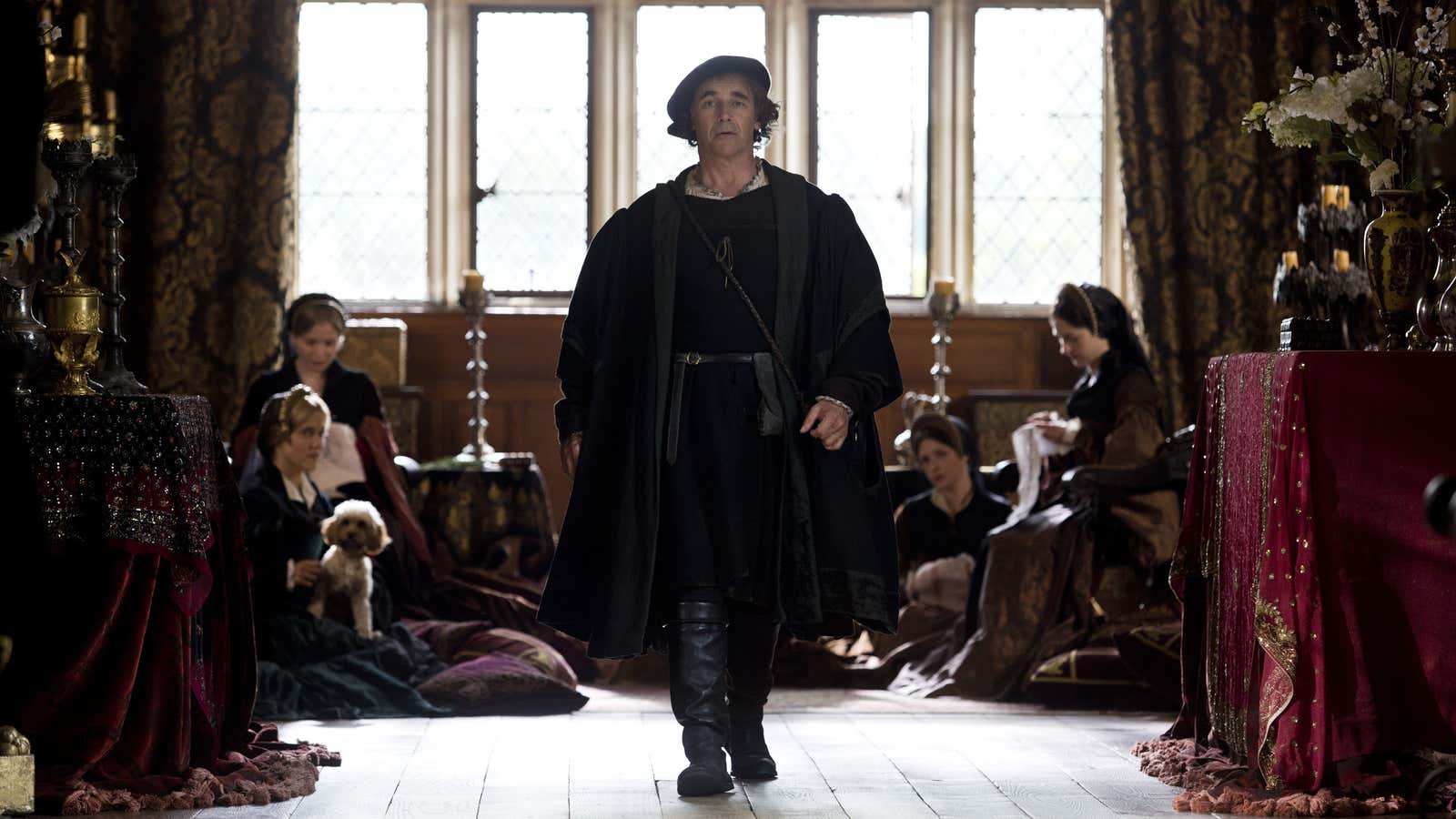This article has been corrected.
Television has spent the last years transforming itself from poor relation to king of culture. A new adaptation of the novel Wolf Hall tugs together threads from literature, theatre, television, documentary, and production, saying as much about today’s cultural values as it does about Tudor England.
The antihero
Wolf Hall is about one of King Henry VIII’s political advisors, Thomas Cromwell (not Oliver Cromwell, famous for leading a much later revolution). Cromwell is the deeply likeable dark heart at the centre of two existing books by Hilary Mantel (a third is in the works). This character—neither hero nor villain, intelligent, violent, damaged and skilled—is exactly the kind of hero television series of the last year have loved. TV’s expansive space—multiple hours rather than the two allotted to films—allows for an intricate unfolding of character: acts of brutality, tenderness, and redemption, without apparent contradiction. Think Walter White in Breaking Bad, Mad Men’s Don Draper, True Detective’s Rusten Cole, and Sarah Lund in The Killing. Finding this new archetype is one of the things that has transformed television, replacing its “lite” image with something much murkier.
The co-producers
The six-part series hits the BBC this week, and US screens on April 5—as a co-production between the BBC and PBS division Masterpiece, it’s had American audiences in mind from the start. Masterpiece was also co-producer of Downton Abbey, which wooed US viewers with a prominently-placed American character. Wolf Hall, set at a time Europe was only dimly aware of America’s existence, has no such recourse, and will have to rely on great costumes and marketing.
The material
Hilary Mantel, author of the books that originated the series, is certain to suck in viewers. The only woman ever to win the Booker Prize more than once, Mantel won with both Wolf Hall in 2009 and its sequel Bring up the Bodies, which charts Anne Boleyn’s fall from grace, in 2012. The books sold 1.2 million copies in the UK alone. Before the television adaptation, the UK’s Royal Shakespeare Company made the first two books into two three-hour plays. A Broadway transfer opens in March. Mantel is famous for her meticulous research and historical accuracy. As well as getting darker, television is getting much smarter.
The interpretation
Mark Rylance, who plays Thomas Cromwell, is not the most famous actor who might have filled the role. But he is one of the best. Rylance is beloved by UK theatre audiences. Television’s new wave, meanwhile, has given breaks to a series of British actors who are skilled (rather than already famous). Think Ian McShane in Deadwood, Dominic West and Idris Elba in The Wire, and Damian Lewis in Homeland (who also plays Henry VIII in Wolf Hall).
And finally, the economics
Unlike open-ended series that run to several seasons, Wolf Hall squeezes two long, subtle novels into six episodes. It still cost £7 million to make. Cromwell, a cloth merchant as well as a murderer and a political genius, would understand: Those dresses don’t come cheap.
Correction (Jan. 19): An earlier version of this article stated that Mantel was the only person to have won the Booker Prize twice. She is the only woman to have done so.
